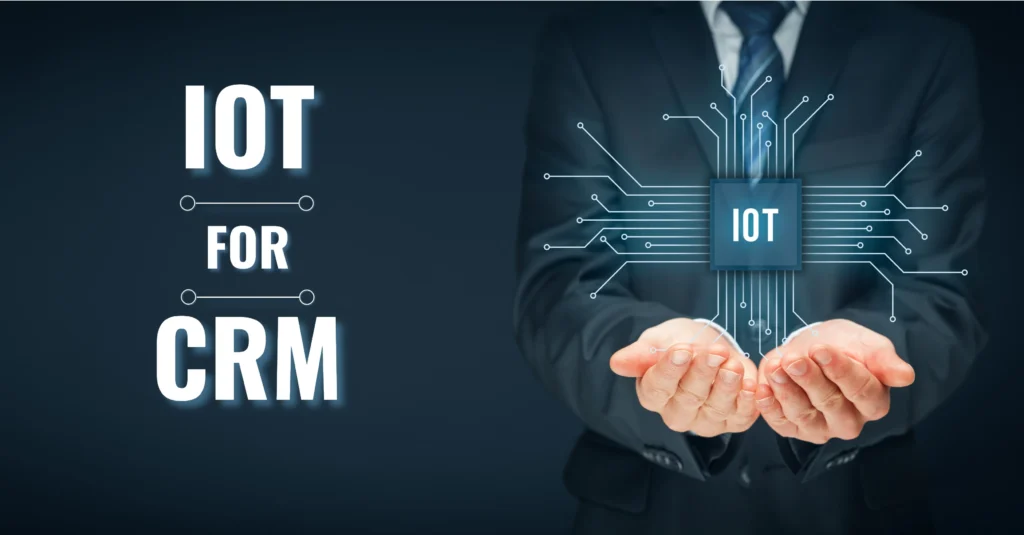The rapid evolution of technology continues to reshape the business landscape, and one of the most transformative developments is the integration of the Internet of Things (IoT) with Customer Relationship Management (CRM) systems. This convergence offers unprecedented opportunities for businesses to enhance customer engagement, streamline operations, and drive growth. Here’s an in-depth look at how integrating IoT with CRM is revolutionizing customer relationship management.

IoT (Internet of Things) refers to the network of interconnected devices that collect and exchange data. These devices range from everyday household items like refrigerators and thermostats to industrial machines and vehicles. The data gathered by IoT devices can provide real-time insights into various processes, behaviors, and environments.
CRM (Customer Relationship Management) systems are platforms that manage a company’s interactions with current and potential customers. CRM systems store customer data, track interactions, and automate various marketing, sales, and customer service processes.
The Synergy Between IoT and CRM
The integration of IoT with CRM systems creates a powerful synergy that enhances the capabilities of both technologies. Here are some key benefits and applications:
- Enhanced Customer Insights
- Real-Time Data Collection: IoT devices provide continuous streams of data about how products are used. This real-time data can be fed into CRM systems to offer deeper insights into customer behavior and preferences.
- Predictive Analytics: By analyzing IoT data, businesses can anticipate customer needs and preferences, allowing for more personalized and proactive customer service.
- Improved Customer Service
- Proactive Maintenance: IoT devices can detect issues before they become major problems. For instance, a smart home appliance can alert the manufacturer about a potential malfunction. This data, integrated into the CRM, allows customer service teams to contact the customer and schedule maintenance proactively.
- Faster Response Times: With real-time data, customer service teams can respond more quickly to customer inquiries and issues, improving overall satisfaction.
- Personalized Marketing
- Behavioral Insights: IoT devices provide detailed insights into how customers use products. Marketers can use this data to create highly targeted and personalized marketing campaigns.
- Customer Segmentation: Detailed IoT data enables more precise customer segmentation, allowing businesses to tailor their marketing strategies to specific groups.
- Optimized Sales Processes
- Sales Forecasting: IoT data can help predict future sales trends based on usage patterns and other factors, enabling more accurate sales forecasting.
- Upselling and Cross-Selling: Understanding how customers use products can identify opportunities for upselling and cross-selling, enhancing revenue potential.
- Increased Operational Efficiency
- Inventory Management: IoT devices can monitor inventory levels in real-time, helping businesses manage stock more efficiently and reduce costs.
- Supply Chain Optimization: Real-time tracking of products through IoT can optimize supply chain operations, ensuring timely deliveries and reducing delays.
Real-World Applications
Several industries are already leveraging the integration of IoT and CRM to drive innovation and efficiency:
- Healthcare: Wearable devices monitor patients’ health in real-time. This data is integrated into CRM systems to provide personalized care and proactive health management.
- Automotive: Connected cars generate data on vehicle performance and driver behavior. Automakers use this data to offer personalized services and maintenance reminders.
- Retail: Smart shelves and beacons track customer behavior in stores, enabling retailers to offer personalized promotions and improve inventory management.
Challenges and Considerations
While the integration of IoT with CRM offers numerous benefits, it also presents certain challenges:
- Data Security: The vast amount of data generated by IoT devices needs to be securely managed to protect customer privacy and prevent breaches.
- Data Integration: Integrating diverse data from various IoT devices into CRM systems can be complex and requires robust data management strategies.
- Cost: Implementing IoT and integrating it with CRM systems can be costly. Businesses need to assess the return on investment carefully.
Integrating IoT with CRM is a game-changer for businesses seeking to enhance customer engagement and operational efficiency. By harnessing the power of real-time data and advanced analytics, companies can offer more personalized services, improve customer satisfaction, and drive growth. As technology continues to advance, the synergy between IoT and CRM will likely become even more integral to business success, making it an essential consideration for forward-thinking organizations.